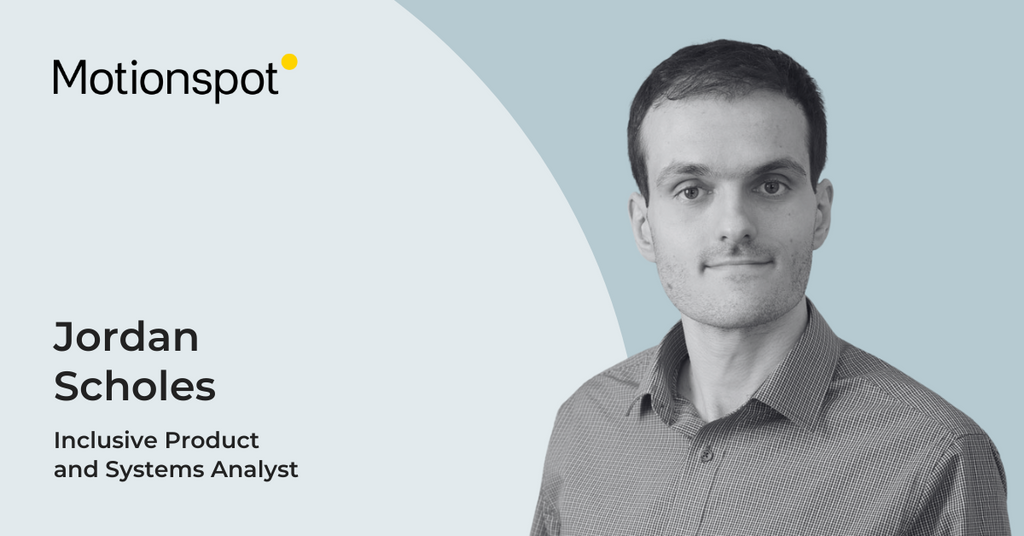Being a neurodivergent employee at Motionspot
 Jordan Scholes is an Inclusive Product and Systems Analyst at Motionspot. He is also a founding member of our weekly running club. This Neurodiversity Celebration Week, Jordan shares some of his personal thoughts about autism and being a neurodivergent employee at Motionspot.
Jordan Scholes is an Inclusive Product and Systems Analyst at Motionspot. He is also a founding member of our weekly running club. This Neurodiversity Celebration Week, Jordan shares some of his personal thoughts about autism and being a neurodivergent employee at Motionspot.
How would you describe autism and neurodivergence?
Neurodiversity and autism are both broad categories. Autism can range from someone being non-verbal, to someone that just communicates in a slightly different way.
In my case, I might give you an unexpected blunt answer to a question or take something literally that I wasn’t supposed to. I have trouble working in noisy environments and areas with bright lights, and you might see me “stimming” during a meeting to keep calm. On the other hand, I’m good at communicating over phone or email, I have strong attention to detail, and I can be really passionate and productive when I find a project interesting.
What is it like to work at Motionspot as a neurodivergent employee?
I think Motionspot is the type of business that attracts non-judgemental people. They don’t make you feel like an outcast or bring attention to anything unusual they might notice about you. During work, I have a logical, solution-focused approach to tasks, which I feel contrasts well with many of my colleagues who are more creatively minded.
The recruitment process is very accommodating. A welcome guide to the design studio where interviews take place is given to all applicants, and options were available for things like virtual interviews or interview questions provided in advance.
Our design studio in Teddington is a comfortable place for me to work, offering a lot of natural light and quiet spaces to decompress.
Why do you think it is important to share your experiences?
I recently learned of a statistic that 7 out of 10 autistic people are unemployed (Buckland Review 2024). I think this is a great shame as we have a lot to offer employers, and our experience in the workplace could be improved if people had a better understanding of the challenges autistic people face, particularly around the recruitment process.
Autistic people can find uncertainty to be stressful, so small things like providing interview questions in advance, or a map/virtual tour of the space ahead of time can go a long way to help an autistic person perform at their best during an interview.
I’m hopeful that with the release of The Buckland Review of Autism Employment, we will start to see more employers making their workplaces more inclusive for those with autism.
What would you like people to know about autism?
It can be daunting as a person with autism entering the workplace, not knowing if you will be treated differently because of your condition. I feel people having a better understanding of autism can help make those with the condition comfortable disclosing their diagnosis, with the knowledge that they will be treated fairly.
Autistica have some great articles describing how autism affects people as well as going over common misconceptions.
https://www.autistica.org.uk/what-is-autism/what-is-autism
https://www.autistica.org.uk/what-is-autism/autism-myths-and-causes
Start a conversation
Get in touch to chat through your plans or requirements and see how we can help.
Contact usStay connected
Sign up to receive the latest inclusive design insight and inspiration from our team.



